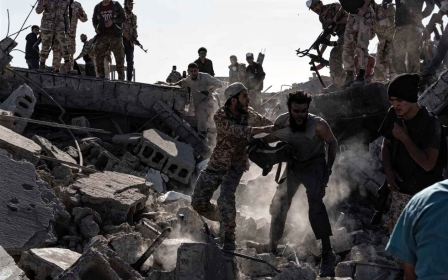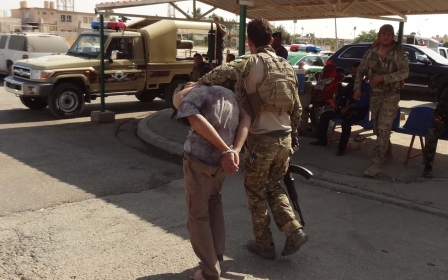IS fighters returning to Europe in the hundreds, says EU report
A third of the estimated 5,000 European citizens who went to Syria and Iraq have returned, and some may have orders to attack, an EU report warned Wednesday.
Up to 2,500 fighters from Europe remained on the battlefield but their return in the short term seemed unlikely, according to the report seen by AFP.
The report said between 15 to 20 percent of the Europeans had been killed on the battlefield, about 30 to 35 percent have returned and 50 percent remain in theatre, which amounted to between 2,000 and 2,500 Europeans.
As many as 1,750 may have returned, based on the percentages listed in the report which EU counter-terrorism coordinator Gilles de Kerchove will present to EU interior ministers on Friday.
Belgium expressed concern last month that fighters were increasingly returning to Europe as US-backed coalition forces drive the Islamic State group from territory in Syria and Iraq.
The report said there were two types of "foreign terrorist fighters" returning.
"Those in the majority that will drift back, and those who will be sent back on specific missions, which are of most concern," the report warned.
It said even some European women and children born or raised in the so-called caliphate declared by IS in Iraq and Syria could pose a security threat as they may have been radicalised.
Without giving figures, it said some of those who had returned had been convicted and serving prison sentences, while others were being monitored and some were free in their communities.
It recalled that foreign fighters who had returned to Europe had staged both foiled and successful attacks, including those in Paris in November last year and this year's bombings in Brussels in March.
"There is also a significant foreign terrorist fighter contingent with [IS] in Libya which might attempt to use their nationality or family connections to return to Europe," the report said.
It said those who had returned were keeping in touch with IS in the Middle East via social media and increasingly turning from mainstream Twitter to the encrypted one-to-one messaging service Telegram.
New MEE newsletter: Jerusalem Dispatch
Sign up to get the latest insights and analysis on Israel-Palestine, alongside Turkey Unpacked and other MEE newsletters
Middle East Eye delivers independent and unrivalled coverage and analysis of the Middle East, North Africa and beyond. To learn more about republishing this content and the associated fees, please fill out this form. More about MEE can be found here.




